Montenegrin PM, opposition "reach deal on language issue"
Montenegrin PM Igor Lukšić and opposition parties reached an agreement on Monday with regard to issues of the Serbian language and citizenship, said reports.
Monday, 15.08.2011.
16:13

Montenegrin PM Igor Luksic and opposition parties reached an agreement on Monday with regard to issues of the Serbian language and citizenship, said reports. This was the opposition's condition for providing a two-third majority in parliament that was necessary for a new electoral law to be adopted. Montenegrin PM, opposition "reach deal on language issue" Luksic conferred with leader of the Socialist People's Party (SNP) Srdjan Milic, leader of the New Serb Democracy (NOVA) Andrija Mandic, deputy leader of the Movement for Changes Branko Radulovic. The meeting in Podgorica was also attended by Minister of Education Slavoljub Stijepovic. After the three-hour meeting, Mandic told reporters that the Montenegrin government agreed to amend the laws on education and citizenship, so that the parliament could then adopt the electoral law, which constitutes the EU's first condition for granting Montenegro the date of pre-accession talks. Mandic did not specify the details discussed during the talks, but he noted that all citizens who had any document issued by the Republic of Montenegro would be able to obtain citizenship through a simplified procedure, adding that the "Serbian linguistic community" would get a chance to attend classes in their mother tongue. Radulovic said that officials did not reach a complete consensus on the issue of citizenship but that the issue should be resolved over the next few days during the parliament collegium. The leader of the SNP, the strongest opposition party, Srdjan Milic did not issue a statement for reporters following the meeting. In the population census conducted earlier this year, 43.88 percent of the citizens of Montenegro said they spoke Serbian, while 36.97 percent declared themselves to be Montenegrin speakers. Despite this, Montenegrin Parliament Speaker Rajko Krivokapic stated earlier this month that a request for the Serbian language to be re-introduced to the Montenegrin educational system "would not be discussed". A view of the town of Podgorica (file) "Major step" Montenegrin Prime Minister Igor Luksic said on Monday that agreement reached with the opposition on issues of the use of Serbian language and of citizenship were a major step towards ensuring that the EU grant date of Montenegro's accession negotiations. That agreement was the opposition's condition for providing a two-third majority in the parliament that is necessary for the electoral law to be adopted. It also constitutes the EU's first condition for granting Montenegro a date for pre-accession talks. Luksic said agreement was reached to amend the law on education, providing for education in Serbian language too in Montenegrin schools. He added that all citizens who who are on the polling lists in Montenegro would be able to obtain citizenship through a simplified procedure.
Montenegrin PM, opposition "reach deal on language issue"
Lukšić conferred with leader of the Socialist People's Party (SNP) Srđan Milić, leader of the New Serb Democracy (NOVA) Andrija Mandić, deputy leader of the Movement for Changes Branko Radulović. The meeting in Podgorica was also attended by Minister of Education Slavoljub Stijepović.After the three-hour meeting, Mandić told reporters that the Montenegrin government agreed to amend the laws on education and citizenship, so that the parliament could then adopt the electoral law, which constitutes the EU's first condition for granting Montenegro the date of pre-accession talks.
Mandić did not specify the details discussed during the talks, but he noted that all citizens who had any document issued by the Republic of Montenegro would be able to obtain citizenship through a simplified procedure, adding that the "Serbian linguistic community" would get a chance to attend classes in their mother tongue.
Radulović said that officials did not reach a complete consensus on the issue of citizenship but that the issue should be resolved over the next few days during the parliament collegium.
The leader of the SNP, the strongest opposition party, Srđan Milić did not issue a statement for reporters following the meeting.
In the population census conducted earlier this year, 43.88 percent of the citizens of Montenegro said they spoke Serbian, while 36.97 percent declared themselves to be Montenegrin speakers.
Despite this, Montenegrin Parliament Speaker Rajko Krivokapić stated earlier this month that a request for the Serbian language to be re-introduced to the Montenegrin educational system "would not be discussed".
"Major step"
Montenegrin Prime Minister Igor Lukšić said on Monday that agreement reached with the opposition on issues of the use of Serbian language and of citizenship were a major step towards ensuring that the EU grant date of Montenegro's accession negotiations.That agreement was the opposition's condition for providing a two-third majority in the parliament that is necessary for the electoral law to be adopted.
It also constitutes the EU's first condition for granting Montenegro a date for pre-accession talks.
Lukšić said agreement was reached to amend the law on education, providing for education in Serbian language too in Montenegrin schools.
He added that all citizens who who are on the polling lists in Montenegro would be able to obtain citizenship through a simplified procedure.










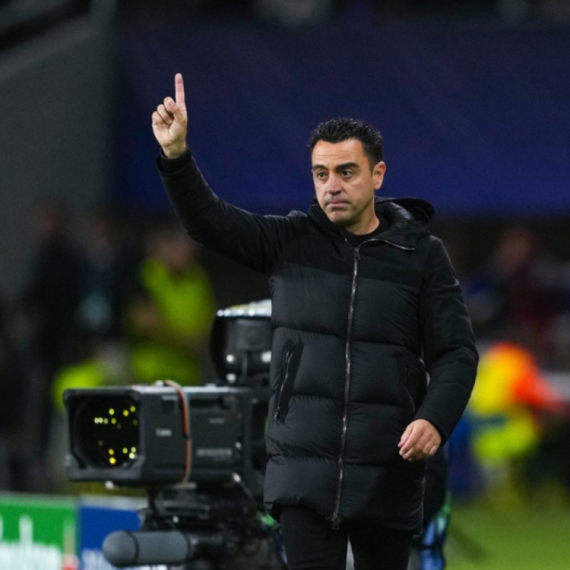




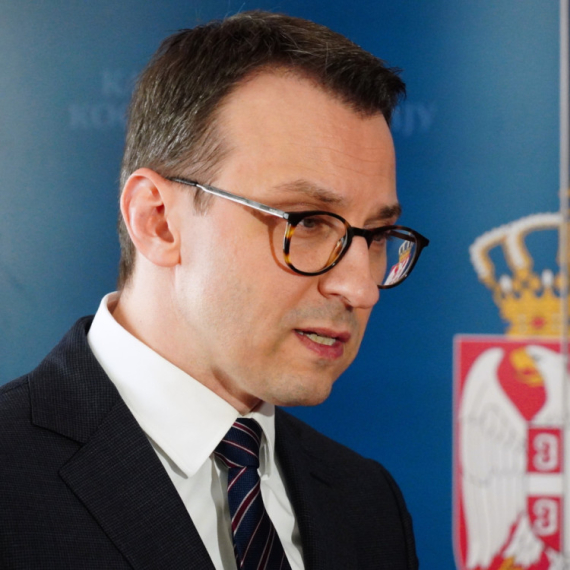
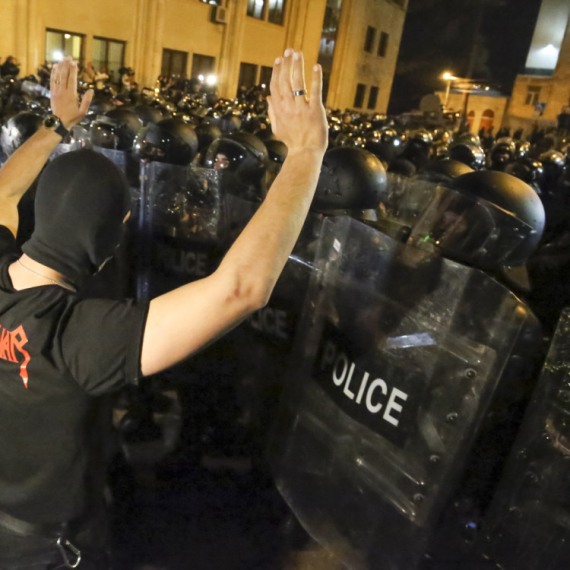
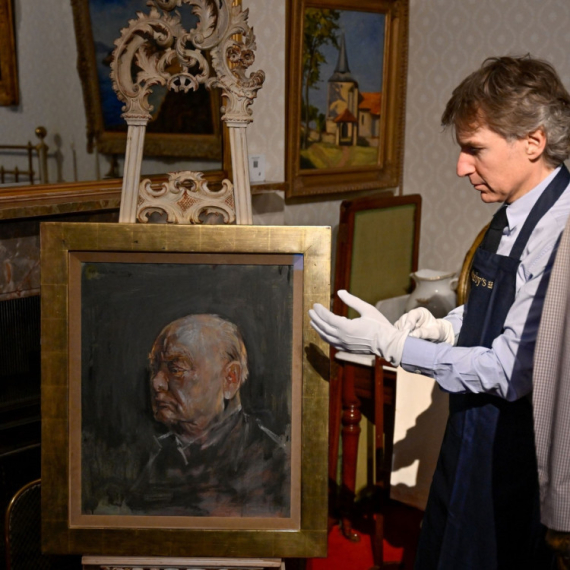














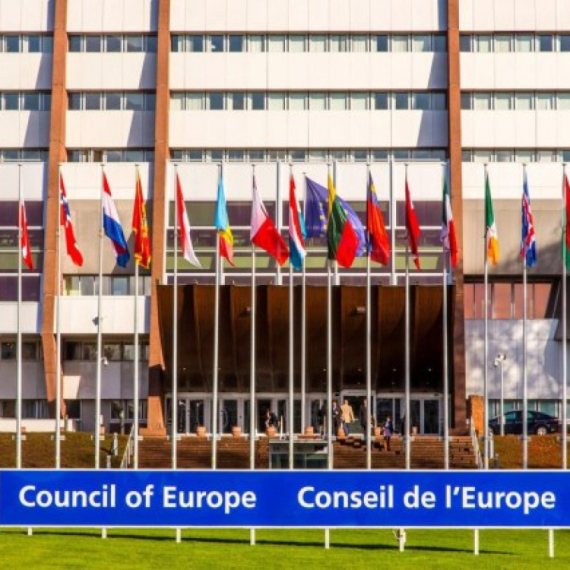














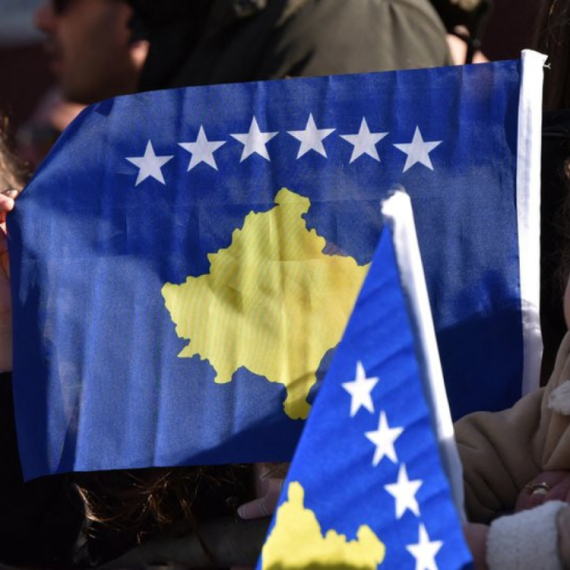





Komentari 10
Pogledaj komentare